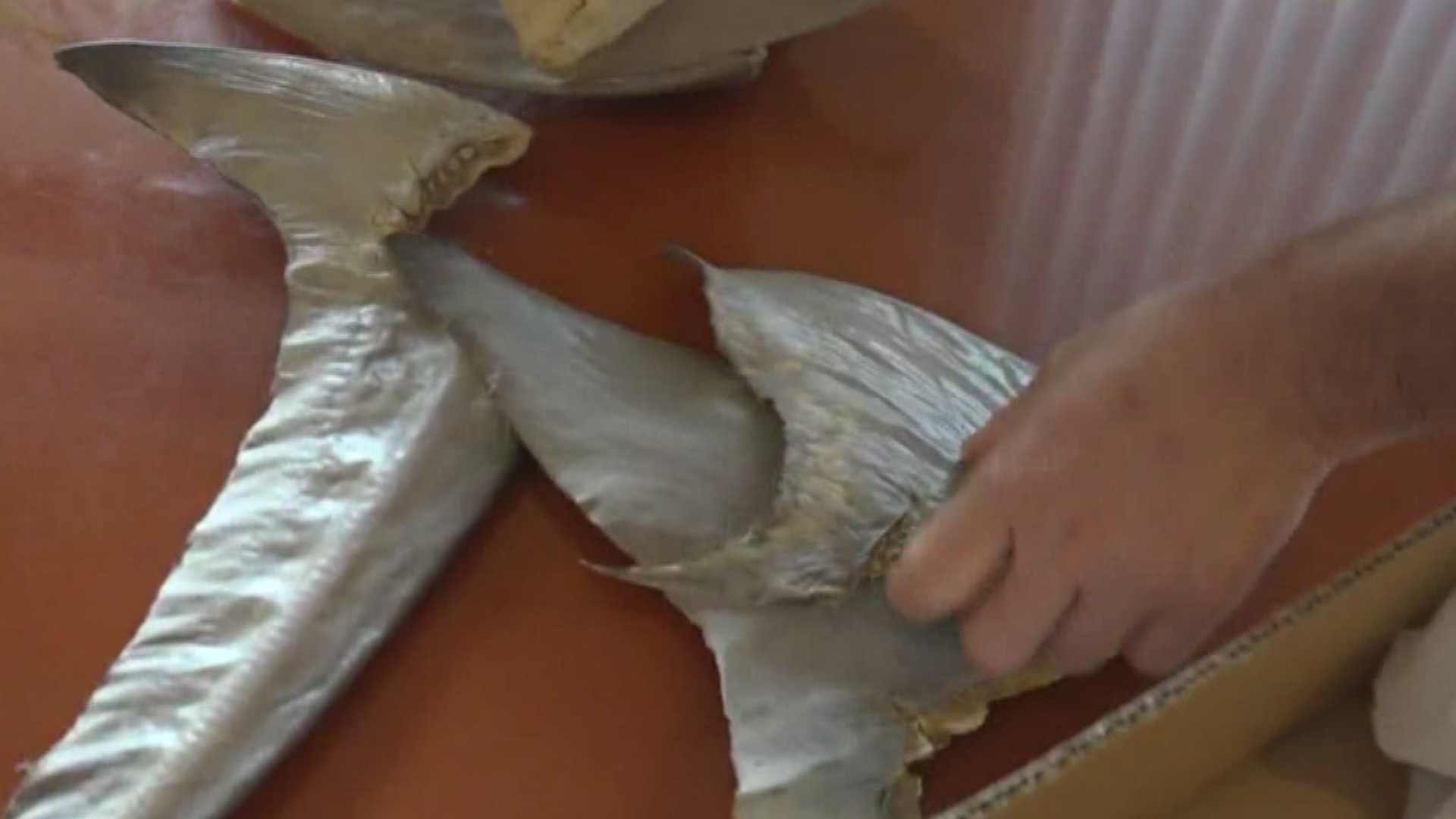ST. PETERSBURG, Fla. — Florida lawmakers are getting support for a pair of bills that would ban the possession, import, export and sale of separated shark fins in Florida.
The legislation, HB 401 and SB 680, are designed to discourage the controversial and inhumane practice known as “shark finning”.
Finning is already illegal in the United States but is still practiced by other countries. It involves pulling a live shark out of the water, cutting off its fin and tail, and tossing the live shark back in the water where it will either suffocate or be eaten alive by other animals.
While Florida law prohibits the practice of finning, the shark fin trade is legal in the state and there are fins being imported from other countries where bans on finning aren’t in place.
And, while most people can agree that finning is bad and should be discouraged, there are differing opinions on whether banning the fin trade altogether is the right approach.
“The emotional side of this is people hear about finning and they think it’s awful, and it is awful, and they say let’s just stop the practice. That’s sort of a feel-good approach, unfortunately, I don’t think it’s going to be very effective in terms of solving the worldwide problem and it is going to punish the wrong people here at home,” said Dr. Bob Hueter, Director of the Center for Shark Research at Mote Marine Laboratory in Sarasota.
Hueter has been involved in helping Florida delegates in Washington, D.C. draft federal legislation in the Sustainable Shark Fisheries And Trade Act of 2019, which he says would be a better way to fight finning.
“When you prohibit something like that, you tend to drive the process underground. Right now, we’re able to at least document the presence of fins in the global fin trade. And, if it’s prohibited in the United States, including Florida, we may basically turn it into a black-market situation and it’s very hard to track,” said Hueter. “This is about looking at the actual information and coming up with the best policy to stop finning worldwide and stop overfishing of sharks worldwide, and just to ban the possession and sale of the fins, whether they came from a country that’s finning or they were produced by United States fishermen, it’s just not going to fix the problem.”
“We’d be moving from a situation where we would be allowing the proper and sustainable use of sharks, and the full utilization of them in the right way and going ahead and pushing market share toward the unsustainable side which would end with more sharks dying, not less,” he added. “If you don’t believe in fishing and you don’t think a single shark should ever be removed from the oceans, then you’re going to be for this fin ban.”

